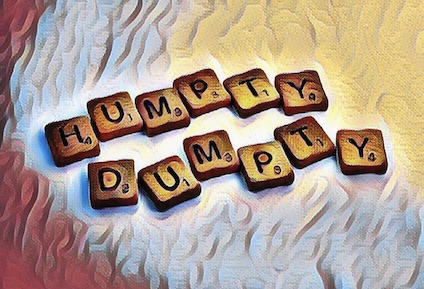Rhyming Dictionary
Welcome to the Rhyme Finder! This rhyming dictionary allows users to explore rhymes for any given word. This includes rhymes based on syllables, near rhymes, and more.
How to use the rhyming dictionary
Enter your "starter" word in the FIND RHYMES input box, and click search. It's really that simple! We separate perfect rhymes (near the top) from the imperfect rhymes (toward the bottom). In your rhyming results, colors descend based on the best rhyme. Once the color changes, you will notice the results reset back into alphabetical order. Click on any of the results for the word's definition, part of speech, use in Scrabble, and more. Please note that many of our results are proper nound or slang. While we may not store definitions for all of these words, we can direct you to the Google results for that word.
Perfect Rhymes
Perfect rhymes are just what they sound like. No pun intended! Think of perfect rhymes as words which definitively rhyme. Words that most people would not question. Here are some examples:- Cat and Hat
- Head and Red
- Egg and Beg
- Soap and Hope
- True and Blue
Imperfect Rhymes
Near rhymes, otherwise known as imperfect rhymes, are words that sound the same but are not perfect rhymes. Having trouble deciding if a word is a perfect or imperfect rhyme? Here are some examples:
- Cat and Bad
- Head and Mud
- Egg and Peck
- Soap and Chap
- True and Cure
Using Rhymes
Rhymes are most useful in creating lyrics, but they can also be used as a tool to memorize. It is a powerful mnemonic device. This is why song lyrics can be so easy to remember! It's also why rhymes are a great study tool for memorizing! Use this tool to help write poetry, win rhyme games, write a rap song, create lyrics, and expand your vocabulary!
Rhyming is very important in music because it creates a rhythm that further creates meaning, emotion, and feeling. It also creates an echo in the lyrics. With children, rhyming is a very important tool. Rhyming teaches children how language works, helps them understand the rhythm of language, and learn how to make predictions. In other words, rhymes teach children phrases to anticipate and rhymes enhance their memory. Within all contexts, rhyming is helpful in expanding your imagination no matter if you’re a child or an adult.
When creating lyrics, there are five types of rhymes to choose from.
- End rhymes: rhyming of the final word of a line
- Internal rhymes: rhyming of two words within the same line
- Slant rhymes: near rhymes
- Identical rhymes: use the same word at the end of each line
- Eye rhymes: look like they rhyme but sound different
Different Types of Rhymes
- Mascline rhymes: have a stressed syllable
- Feminine rhymes: have a stressless syllable.
Ready for a challenge? Try to come up with rhymes for these surprising words that just aren’t very rhymy. Check them with our dictionary! Examples of tough rhymes:
- Month
- Silver
- Bulb
- Wolf
- Husband
- Walrus
- Orange
